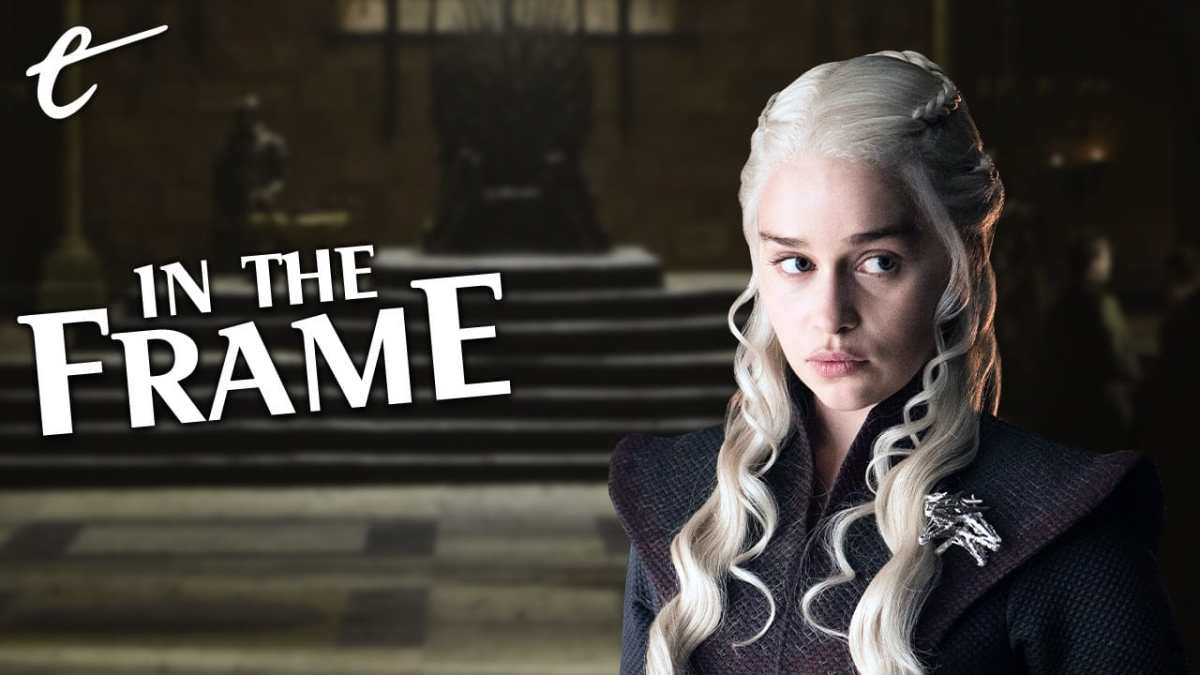If you believe certain sections of the internet, the final season of Game of Thrones ruined the show’s legacy and torched any potential of the show leaving a lasting cultural footprint.
Reflecting on the decade in review at The Guardian, Sarah Hughes insisted the show “faded so swiftly from the collective memory.” In Metro, George Griffiths contended the final year was “so bad it destroyed the show’s entire legacy.” At What to Watch, Kayleigh Donaldson argued the show had “disappeared from the pop culture landscape.”
These are just the professional writers. It is impossible to throw a virtual stone on the internet without hitting an article collecting angry tweets insisting that “literally nobody talks about it anymore,” ignoring the rather obvious point that talking about how nobody talks about Game of Thrones anymore is a self-refuting statement. Anybody who has been on social media knows that this is not an exaggeration, where things like “Jon Snow” still randomly trend.
According to Twitter’s own blog, Game of Thrones was the 8th most discussed television show in the world in 2020, ahead of still-current shows like Tiger King and Stranger Things. The show is still more widely searched on Google than more recent HBO shows like Succession or Watchmen and legacy shows like The Sopranos. There is clearly an appetite for talking about the show. Regardless of what the internet thinks of it, Game of Thrones lives on.
After all, HBO doesn’t seem to have been scared off by the reaction to that final season. The company is continuing its efforts to launch a variety of spin-offs and sequels, with three reportedly in the works at the moment in addition to House of the Dragon. Of course, there have been setbacks and difficulties like the junked pilot for Jane Goldman and S.J. Clarkson’s prequel, but the broadcaster’s desire to push through those speaks to its appetite for more Game of Thrones. There is even a Game of Thrones Broadway play coming.

This week marks the 10th anniversary of the premiere of Game of Thrones, and HBO believes there to be an appetite out there for the show. The channel is running a “MaraThrone” to raise money for charity, has released a reunion special, has announced a new product line, and has organized a month-long “Iron Anniversary” celebration. This includes a $2.2M Faberge dragon egg. It’s absurd and grotesque, but it’s also not something that happens for a television show with no cultural footprint.
Of course, maybe HBO is so out of touch with audiences that it doesn’t realize that the show’s legacy has been ruined and that nobody is watching or talking about Game of Thrones. Except, of course, for all the evidence that people are watching it. In July 2020, a year after the finale, Parrot Analytics argued that Game of Thrones was the most streamed (and still the most pirated) show in the world, 91 times more popular than the average show.
It isn’t just Parrot Analytics that singles out Game of Thrones as a popular pandemic binge. On HBO Now, the show grew its audience by 50% in April 2020. In May 2020, Reelgood suggested that many viewers were watching the show for the first time in lockdown, even with the internet buzz around the finale. It isn’t just new viewers, either. In March 2021, Vodafone revealed that Game of Thrones was the second-most-binged show in the United Kingdom during the pandemic.
Nor are people just streaming and pirating the show. There’s ample evidence that people are buying physical media. The final season was also the top-selling television show on home media in 2019 and placed comfortably in the top 100 combined DVD and Blu-ray sales for 2020. This is in an industry where DVD sales have dropped more than 86% in the 13 years. All of this comes together to suggest that maybe – just maybe – Game of Thrones is enjoying a rich and prosperous legacy.

Again, all this data doesn’t suit the narrative that the internet has imposed around Game of Thrones. In this popular imagining, and likely in the comment section below, the show’s final season was so terrible that it erased any abiding affection for the show and consigned it to the same strange pop cultural purgatory haunted by Avatar – a space where the only time that people talk about Game of Thrones is to talk about how much they are not talking about Game of Thrones.
Of course, the internet is not the real world. The opinions held on the internet are not necessarily reflective of those held by ordinary people who don’t regularly yell at one another about films and television series online. In 2006, Snakes on a Plane was heralded as the first “blogbuster,” propelled into production by the concept’s success as “an internet phenomenon.” The film died on release, proof “that Internet interest in a movie doesn’t necessarily translate to good box office.”
With this in mind, it’s worth noting that surveys of viewers suggest that 63% of audiences were at least somewhat positive about how Game of Thrones ended. The reality of the internet is that it tends to distort reality. Part of this is down to the design of algorithms that push both providers and consumers towards more extreme arguments to drive passionate engagement. What’s more, those who shout most aggressively are those most likely to be heard, provided they can do it longest and loudest.
Those fans disappointed with the final season of Game of Thrones have certainly made themselves heard. They’ve signed petitions to remake the final season “with competent writers.” They’ve flown sky banners over Seattle to demand a rewrite. It has been suggested that the “toxic fandom” around Star Wars and the behavior of Game of Thrones fans was a factor in David Benioff and Dan Weiss departing their planned Star Wars trilogy. To be fair, the fandom has also raised over $125,000 for charities associated with actors Kit Harington and Emilia Clarke.

This response is very loud. It is also very familiar. The most aggressive of these Game of Thrones fans have behaved similarly to the most aggressive Zack Snyder fans who campaigned using many of the same tactics for the release of Zack Snyder’s Justice League. Those fans also organized petitions and flew sky banners over Comic-Con. They also engaged in other documented aggressive behavior, although it does not appear they forced anybody out of a job. To be fair, they also raised over $500,000 for the American Foundation for Suicide Prevention.
There’s an interesting cognitive dissonance at play here. Many of those who would earnestly and loudly claim that “many viewers” felt that the final season of Game of Thrones was “a total disaster” would simultaneously argue that those campaigning for the release of Zack Snyder’s Justice League were “a relatively small group.” As with most things on the internet, it seems like whatever the person making the argument believes to be true must be true. The internet isn’t a platform, but a mirror.
There’s a performative element to this, as there is to most online activity. For many, decrying the failure of Game of Thrones is just as much a piece of public theater as claiming not to watch it when it was on the air. It’s a way of marking an identity. However, it’s also about affirming the argument, seeking validation for it. There’s an unspoken assumption that somehow an individual’s hatred of Game of Thrones might be lessened if it is not the majority opinion.
One interesting trend in the internet age is the increasing sense that reviews and opinion pieces exist to validate existing opinions rather than to broaden perspectives; this is why critics get death threats for having dissenting opinions on works with vocal fandoms. Similarly, it is interesting how reluctant people are to let go of this. There’s a strong emotional investment. Professor Jonathan Cohen has suggested that one of the reasons why finales like Game of Thrones can leave viewers so fixated is because they can feel like breakups.

Of course, none of this is to suggest that those vocal fans are necessarily wrong in their assessment. Taste is inherently subjective, people like what they like, and they react emotionally to different things. However, it would also be absurd to assume that the most vocal and aggressive of fans are representative of the bulk of the viewing audience – particularly considering the evidence that Game of Thrones continues to be enjoyed by a large audience almost two years after it went off the air.
There is a fascinating gulf between the demonstrable enduring success of Game of Thrones and certain sections of the internet’s fixation on the show as “the worst possible version of itself.” That divide is stark and remarkable. There’s no doubting the intensity of that feeling for those who hold it, which may be (at least in part) down to the way in which Game of Thrones dared to make the audience complicit in its hero’s carnage.
It’s a good policy to be wary of the voices howling loudly in the internet void. This is about more than just pop culture, but speaks to an increasingly fragmented world in which people seem incapable of discerning between what they want to believe and material reality. It is entirely possible to both hate the final season of Game of Thrones and acknowledge the show’s continuing success and popularity. Those two things can be true at the same time.






Published: Apr 9, 2021 11:00 am